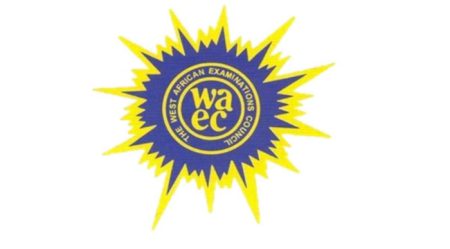Paragraph 1: Introduction – DAPPMAN’s Commendation of NMDPRA’s Regulatory Impact
The Depot and Petroleum Products Marketers Association of Nigeria (DAPPMAN) has lauded the Nigerian Midstream and Downstream Petroleum Regulatory Authority (NMDPRA) for its significant contributions to the stability and growth of the Nigerian downstream petroleum sector. DAPPMAN attributes the sector’s recent successes, including enhanced operational efficiency, increased product availability, and a surge in investor confidence, to the NMDPRA’s “firm, fair, and functional” leadership. Specifically, DAPPMAN credits the NMDPRA’s strategic regulatory oversight for attracting substantial investments in modular refineries, curbing cross-border fuel smuggling, and ensuring a consistent nationwide supply of petroleum products. DAPPMAN’s Executive Secretary, Olufemi Adewole, emphasized the transformative impact of the NMDPRA under the leadership of Farouk Ahmed, pledging the association’s continued support for the agency’s efforts to promote sustainability and expand access to energy solutions across Nigeria.
Paragraph 2: NMDPRA’s Role in Addressing Fuel Scarcity and Promoting Investment
Adewole highlighted the NMDPRA’s pivotal role in mitigating fuel scarcity incidents through collaborative efforts with the Nigerian National Petroleum Company Limited (NNPC) and other stakeholders. He noted the significant improvement in petrol sufficiency across the nation compared to previous years, attributing this achievement to the NMDPRA’s intervention and effective collaboration within the sector. Furthermore, Adewole underscored the NMDPRA’s transparent regulatory framework, which has incentivized investment in the downstream sector, particularly in refining and distribution. The licensing of modular refineries and robust compliance enforcement have played a crucial role in attracting private sector participation and boosting investor confidence.
Paragraph 3: Quantifiable Achievements of the NMDPRA’s Regulatory Initiatives
DAPPMAN quantified the positive impact of the NMDPRA’s regulatory interventions, citing a $1.2 billion inflow of investments into modular refineries since 2022, as reported in the NMDPRA Industry Brief, 2024. This significant investment underscores the effectiveness of the authority’s streamlined licensing processes in attracting capital to the sector. Additionally, DAPPMAN highlighted a 35% reduction in cross-border fuel diversion, attributed to the NMDPRA’s stricter anti-smuggling measures, as documented in an NNPC Security Report. These concrete results demonstrate the tangible benefits of the NMDPRA’s regulatory efforts in combating illicit activities and promoting market stability.
Paragraph 4: Technological Advancements and Enhanced Compliance under NMDPRA
Adewole further emphasized the NMDPRA’s adoption of innovative technologies and its commitment to compliance enforcement. The Automated Downstream System (ADS), implemented by the authority, has been instrumental in curbing hoarding and illegal sales through real-time monitoring of product distribution. The NMDPRA’s zero-tolerance policy for adulterated products has resulted in significantly improved fuel quality, with 98% compliance reported in major depots. This focus on quality control ensures that consumers receive safe and reliable petroleum products. Moreover, the NMDPRA’s predictable regulatory framework fosters long-term planning and investment, providing stability and encouraging sustainable growth within the downstream sector.
Paragraph 5: The Impact of the Petroleum Industry Act and Stakeholder Engagement
The Petroleum Industry Act (PIA) has empowered the NMDPRA to implement market-driven policies, including the deregulation of the downstream sector, promoting a more competitive market environment. Adewole praised the NMDPRA’s strategic approach to stakeholder engagement and compliance, fostering open dialogue with industry players and ensuring that policies align with market realities. This collaborative approach has led to a significant reduction in illegal refining activities and further improved product quality through the authority’s enforcement of standards. The PIA and the NMDPRA’s stakeholder engagement strategy have created a more transparent and efficient regulatory landscape.
Paragraph 6: Call for Collaboration and Future Outlook for the Downstream Sector
Adewole concluded by urging all stakeholders in the downstream sector to collaborate effectively with the NMDPRA to enhance competitiveness and attract fresh investments, innovation, and sustainable energy solutions. He expressed DAPPMAN’s satisfaction with the NMDPRA’s proactive policies on depot operations and import regulations, which have restored confidence among investors and consumers. Looking ahead, Adewole stressed the importance of sustained collaboration to drive full deregulation of the downstream sector and maximize its contribution to Nigeria’s economic growth and development. DAPPMAN believes that continued partnership between the NMDPRA and industry stakeholders is essential for achieving long-term stability and prosperity in the Nigerian downstream petroleum sector.














